Aunjanue Ellis-Taylor Called Out "The Color Purple" Remake For Its Erasure Of Black Lesbian Romance
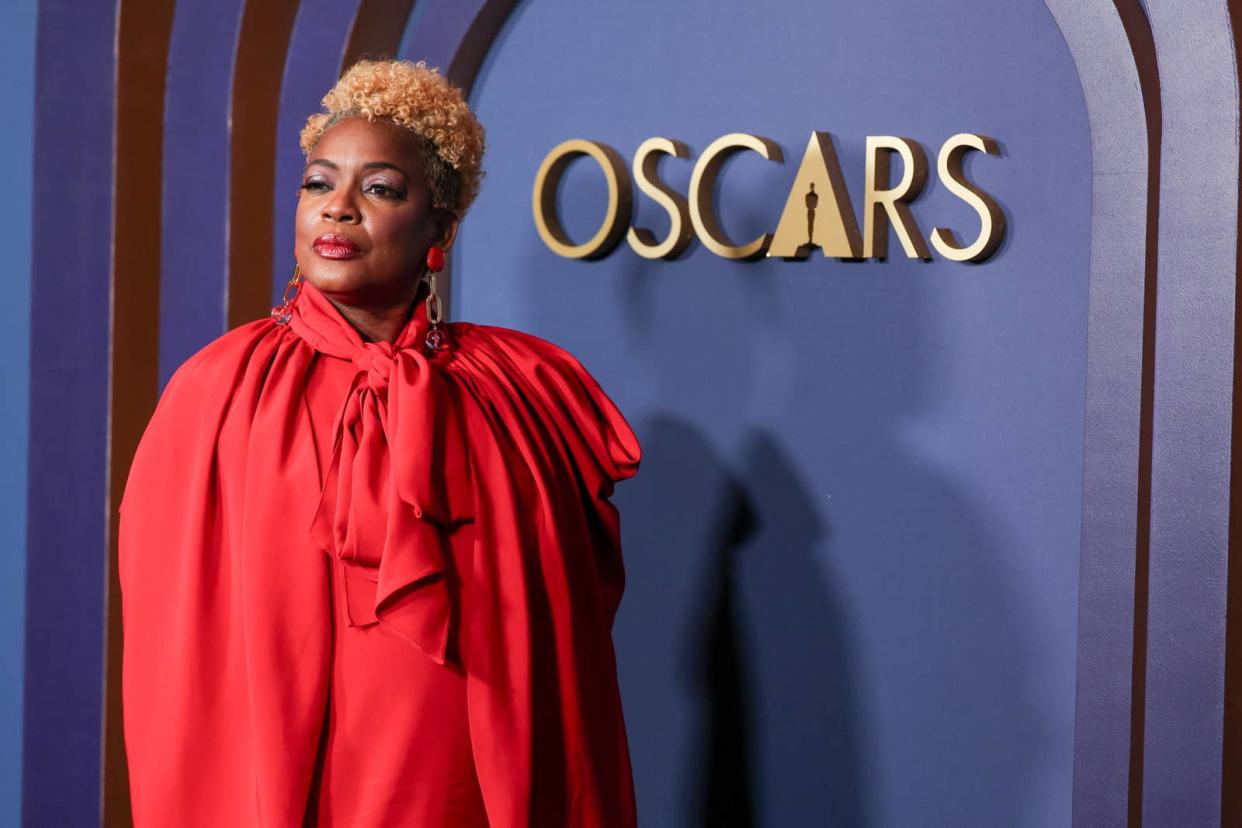
Aunjanue Ellis-Taylor just might be one of the hardest-working actors in show business today. Over the past half-decade, she's delivered stunning performances in critically acclaimed projects such as When They See Us, Lovecraft Country, Origin, and King Richard, alongside Will Smith. Ellis-Taylor's portrayal in the latter as Oracene "Brandy" Price, the revered matriarch of tennis icons Serena and Venus Williams, earned her first Oscar nomination in 2022, marking a significant milestone in her illustrious career.
Yet, perhaps even more noteworthy was her public revelation of her bisexuality at an Essence magazine luncheon that same year. At the event, the actor proudly wore the word "Queer" on her sleeve. Reflecting on the moment, Ellis-Taylor humorously recalls, "I know [some] people thought it said 'queen' and not 'queer.'"It is that effervescent spirit that makes her magnetic, on and off screen. I was honored to interview Aunjanue this month, where she shared insights on her experiences as a Black queer actor, and shed light on the importance of recognizing Black LGBTQIA+ individuals during Black History Month. Read on for our exclusive conversation.
Note: This interview has been edited for length and clarity.
BuzzFeed: Many believe you were overlooked for an Oscar nomination this year, despite your exceptional portrayal of Pulitzer Prize journalist and Caste author Isabel Wilkerson in Origin.
Every year, somebody says, "This should have been nominated." People had such overwhelming reactions to Origin. For us to be overlooked in the way that we were, it was very weird. It made me question a lot of things. I don't question them anymore. I'm on the other side of it. Thank God.
How did you get on the other side?
What makes me feel good is that everyone, but especially Black people, responded to this film. We needed to respond to this film because our knowledge of the caste system in this country helps us be more powerful in fighting it. We're the ones who have to do that. I'm delighted that the folks who needed to know about it were in the theaters.
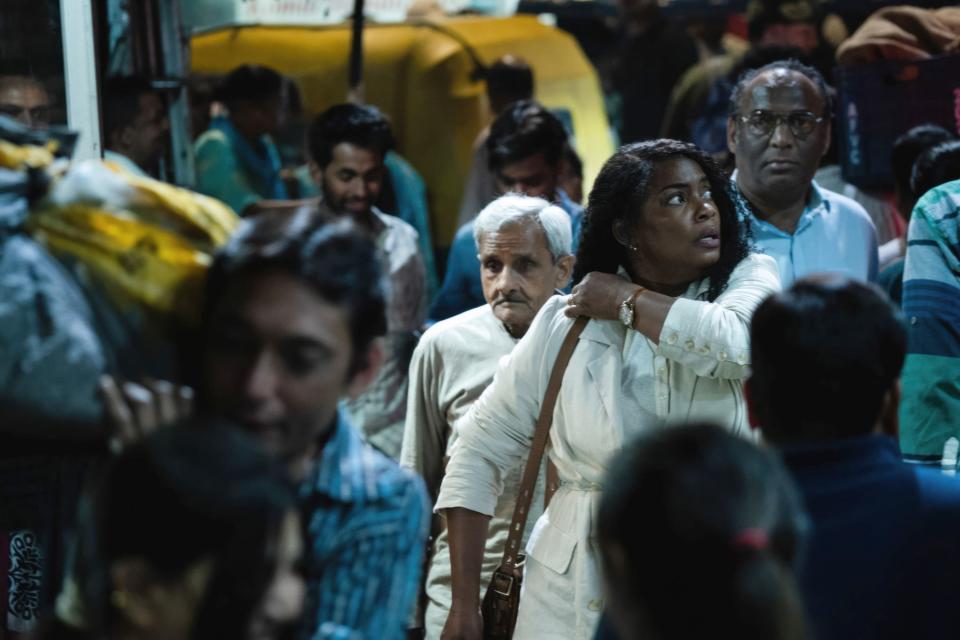
What was the biggest challenge for you in portraying Isabel?
There was a lot of doubt in me when I was making the film. I had to trust that [director] Ava [DuVernay] was getting what she wanted. I was scared to death because I didn't want to let her down. I didn't want to let Miss Wilkerson down. Isabel Wilkerson is alive and well, and I had the audacity to have my face up there as the representation of her ideas [that she wrote about in Caste]. It was a terrifying [experience].
"Somebody has to be brave."
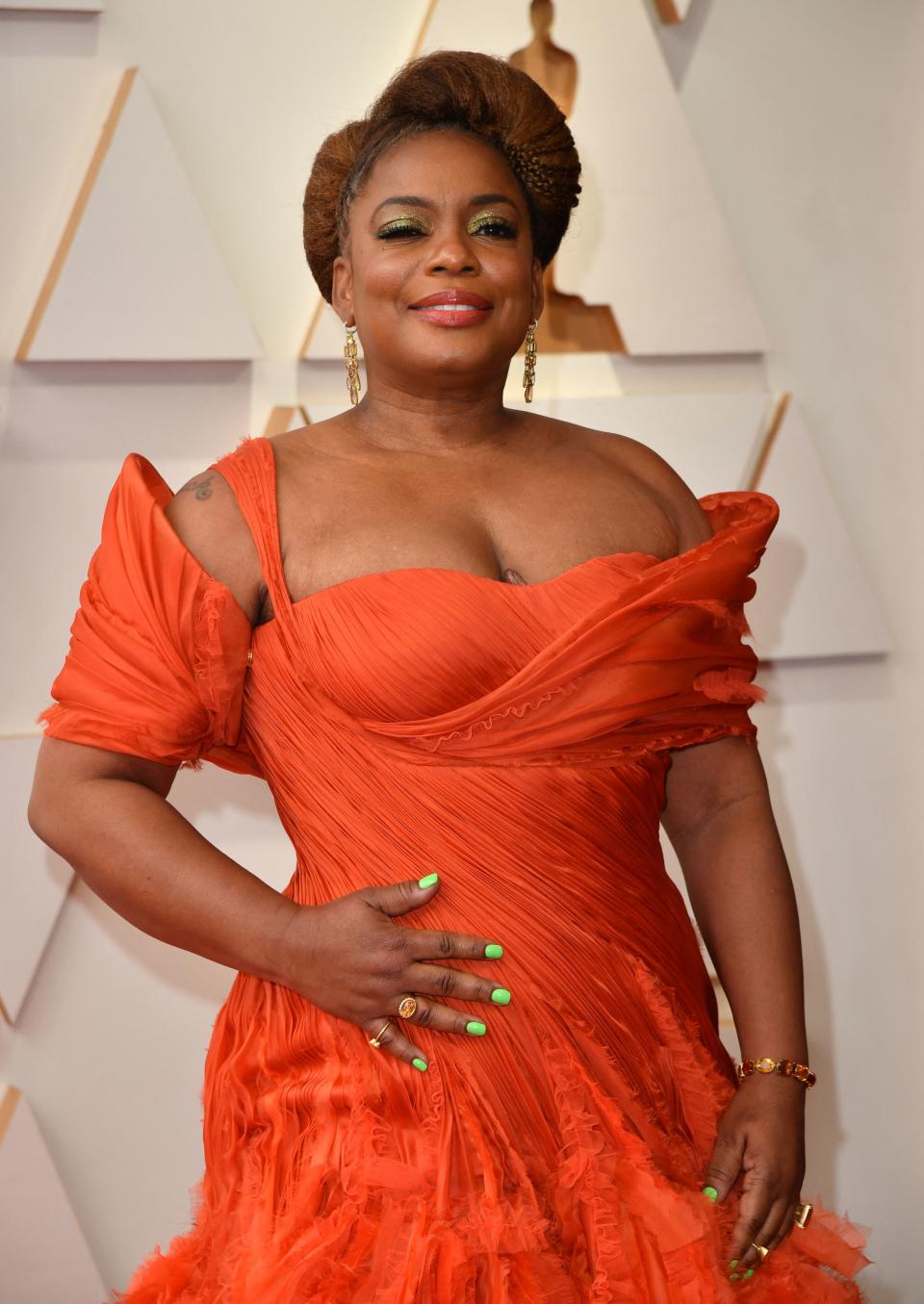
There’s a lot of conversation about the erasure of queer romance in the remake of The Color Purple, which you also appear in. What's your take on it?
The Color Purple is a book about Black lesbians. Whether the choice was made to focus on that or not in the cinematic iterations of The Color Purple, it's still a movie about Black lesbians. People can try to say the story is about sisterhood, but it's a story about Black lesbians. Period. What is hard for me is that when we have those spaces where we can honor the truth of that, we walk away from it. We suppress it. We hide it. We sanitize it. In the sanitizing of it, someone like me — knowing that The Color Purple is a book about Black lesbians — looks at that and thinks, "You're sanitizing me and my friends, and other people who I love and adore. Why?" [If it's because] you don't want to be offensive, then you're saying to the world that I'm offensive.
Do you remember the first time you read the book or saw the original film?
The first time that I saw The Color Purple, it [was] before I understood who I was. I knew that watching Margaret Avery kiss Whoopi Goldberg was astonishing, exciting, and affirming. It showed me the possibility of myself and the possibility to love a woman who loves me in return. I'll never get over that. It lives with me. It's hard seeing so much about the film [being discussed], but [the queer element] is the least discussed. Why are we talking about it almost in a sort of incidental way?
Alice Walker wrote The Color Purple with intention because she was writing about herself. I just want that part of the book to be portrayed in the films with intention, instead of it being incidental. I want people to walk away from The Color Purple thinking, "I just saw a movie about Black lesbians." I don't think that has happened.
You're right. LGBTQIA+ scenes are historically cut from TV and films.
Somebody has to be brave. Alice Walker wrote a book about Black lesbians, and we're still telling that story today. The Color Purple is one of the most important books in the canon of world literature. People are still buying the book. There is business in bravery. Also, you have to have Black women and Black queer women in the making of it. Neither one of the cinematic iterations of The Color Purple [had Black or Black queer women creating it]. The first one was written and directed by a white man. The remake was written and directed by a Black man. I think the writer might be a queer man, but it ain't the same.
"Start from a place of joy."
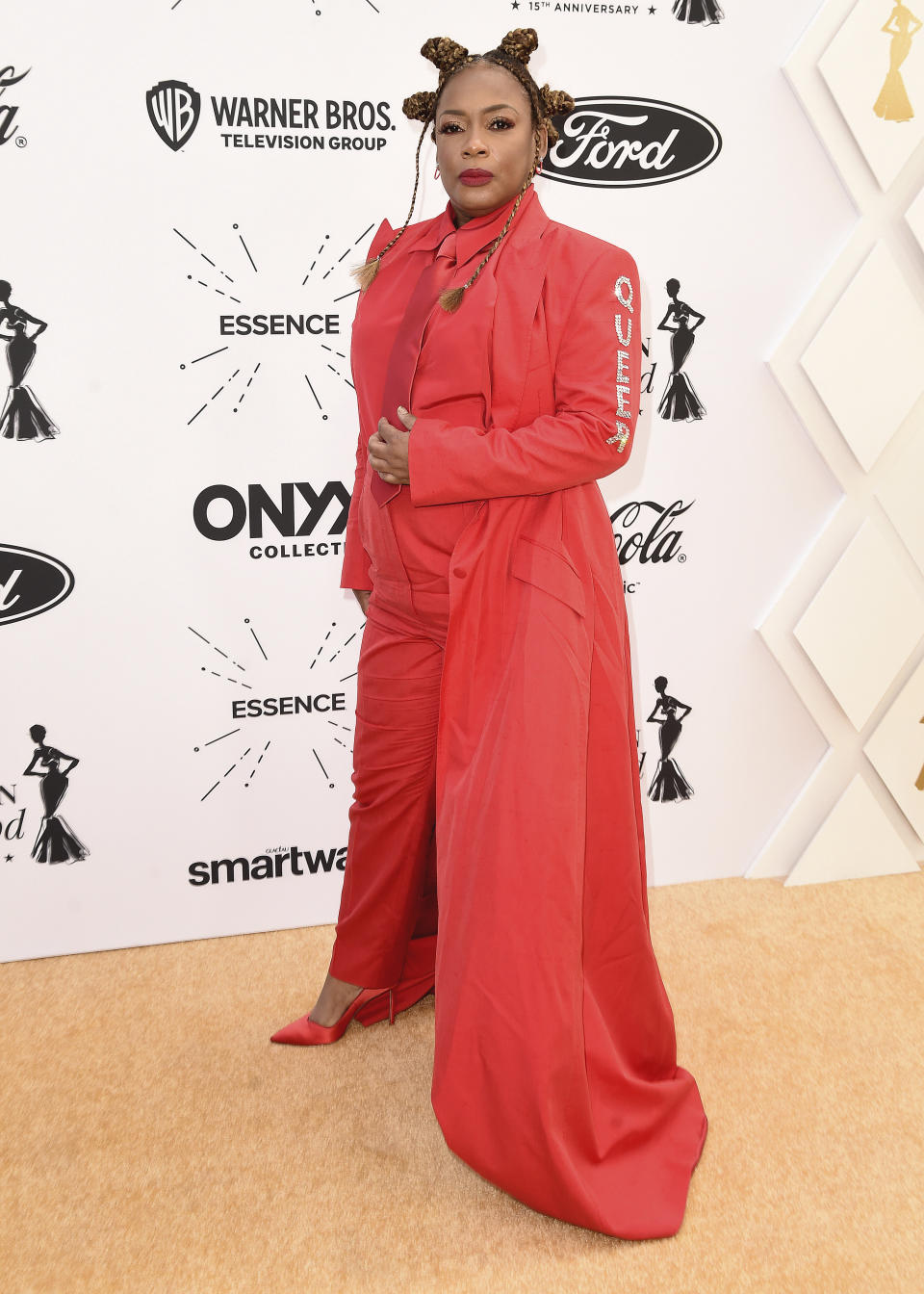
You made a statement at the 2022 Essence Black Women in Hollywood Awards when you wore the word queer on your sleeve.
Wearing the jacket at the Essence luncheon was a proud moment for me. I joked about it in an interview with Variety after because I know people thought it read "queen" and not "queer." [Laughs] I had to get that straight. But yeah, I felt good that day.
Do you have any advice for other Black queer people who may be struggling to be as open as you were that day?
Start from a place of joy. That's hard to do, but joy is a form of acceptance of yourself. Joy is a celebration of your sexuality and a celebration of who you love. When you start from that point, and invest in that, it helps. That moment [on the red carpet] came out of probably a year of where people were just coming at me with [anti-LGBTQIA+ rhetoric], but not knowing they were coming at me.
What types of things did people say to you?
People were saying incredibly insulting things [about LGBTQIA+ people] in my presence. There was a time when I was on set in the hair and makeup trailer and somebody said something [offensive]. All of a sudden, I'm a queer person in the room that has to stand up for queerness and LGBTQIA+ people all over the world. I thought, "I just want to get my hair did."
Another time, I was developing a project with someone and she would say things that were not respectful. I remember she said something about having to kiss a woman [in a scene]. The way she said it was as if it was so disgusting to her. This type of [anti-LGBTQIA+ rhetoric] was directed at me, all in professional settings. I just got tired of it.
"A lot of the characters that I play are outsiders, in a way."
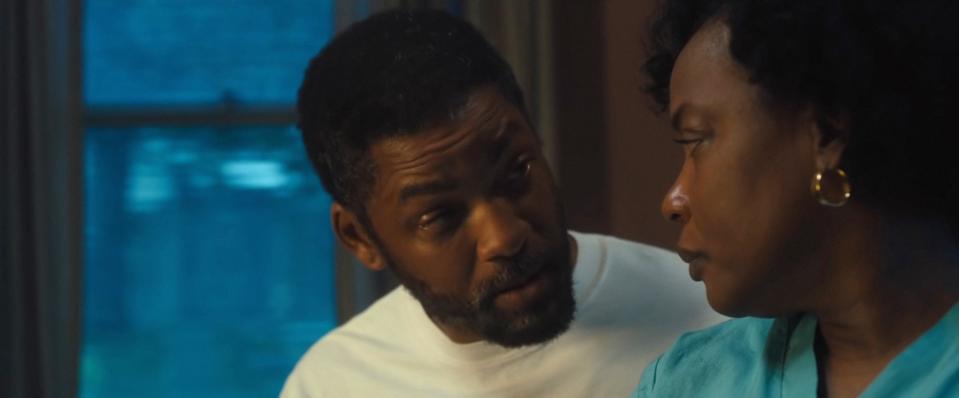
How has being queer informed the roles you play?
A lot of the characters that I play are outsiders, in a way. They may not appear to be, but I think they are. I think Isabel Wilkerson, in Origin, is an intellectual outsider. I would say Oracene Price in King Richard was an outsider in her own marriage. I've always been an outsider because I was a nerd all my life, but also feeling like I didn't belong in most places. Whether I was aware of it or not, my attraction to women disqualified me for most areas I was in. It's possible that when I'm approaching characters, or when I'm approaching work in general, I'm approaching it thinking, "I'm an outsider here. How do I occupy the space?"
Has anyone ever challenged or questioned your sexuality?
I shared [my sexuality] with one of my friends, who is a straight woman, and it still irritates her. She's fine with anybody else [who is queer]. But with me, I think she thinks it means there's a way that she and I don't connect, which scares her. It has also happened with a woman who I've been in a relationship with. She said, "No, you really like men. You're just being curious with me." And I'm like, "No, no, no." I have found that when those things happen, it really is a reflection of that person. It's the reflection of what they want to see in you, and what they don't want to see in you.
Some actors have alluded that being openly queer has impacted their careers. Did you ever have any fear about being openly bisexual in Hollywood?
Not one bit. Not too much scares me. I know what my intentions are. I know that what I try to do is honor Black folks, and Black women particularly. Knowing my heart makes me unafraid. If my heart was not clear, then I would have something to be afraid of. I know I have good people who love me, who care about me, and I love them. I care about their opinions, I care about what they think of me, and I care if they feel like they are loved by me. I can't waste too much sleep on anything else.
"My mother was the love of my life — she is still the love of my life."
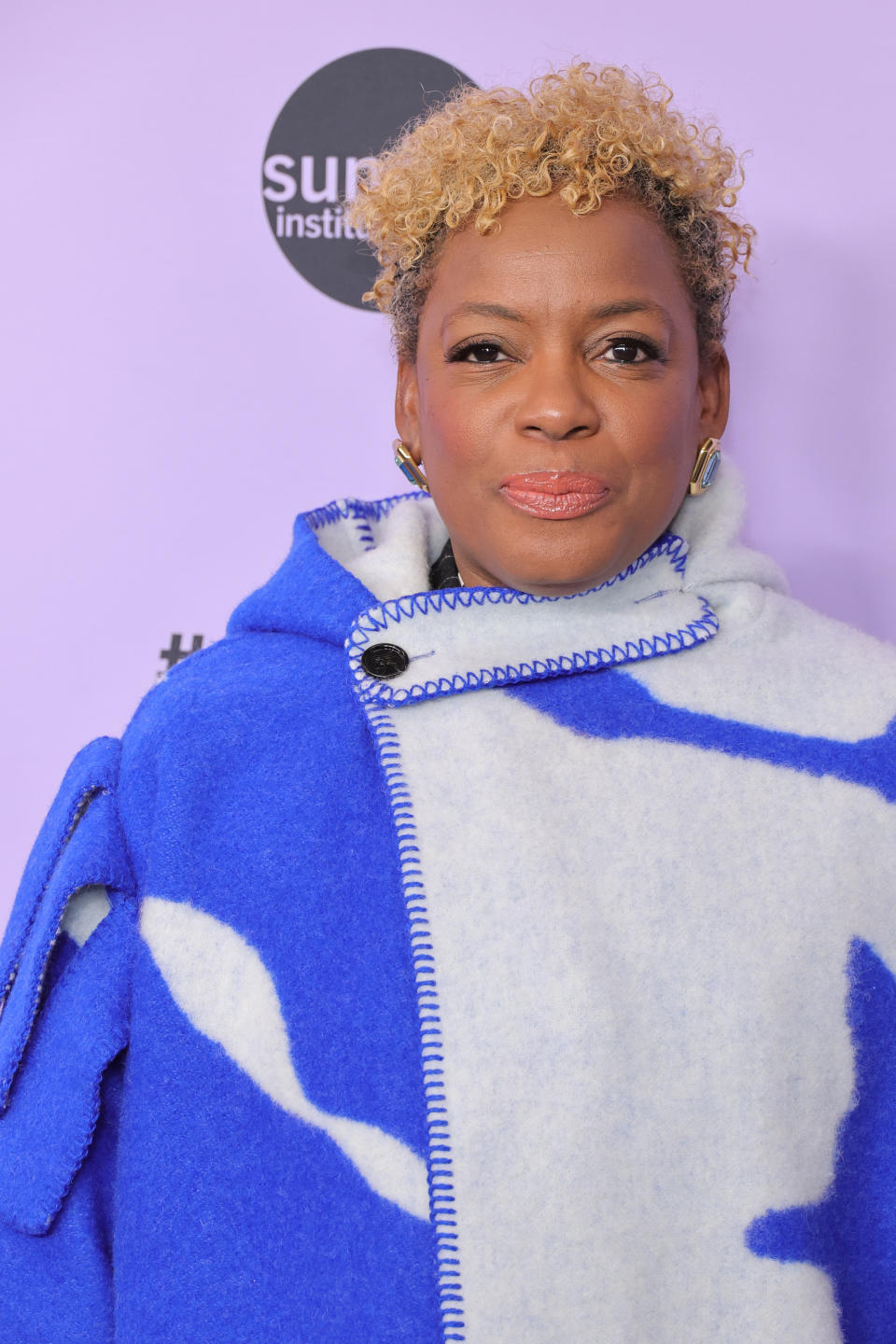
You changed your last name to honor your late mom. What was your relationship like with her?
My mother was the love of my life — she is still the love of my life. She was my ultimate champion and cheerleader, and my best friend. My mother was an interesting woman. She was raised by a pastor and she was very much in the orthodoxy of the Missionary Baptist Church. But she was also sexually free. Without knowing it, she was teaching me that [being that way] was a possibility. When I said to her, "Mommy, I like women," she tried to act offended. I laughed at it. I thought it was a joke. I said, "Listen, lady, you are the most sexually free person I know!" [Laughs] We got over it.
Who is your Black queer icon?
Grace Jones. What I saw in her is someone who owned all of the genders, beyond sexualities. We were just occupants and citizens of her world. I found that to be so sexually freeing and unexpected.
"There's so much work we have to do."
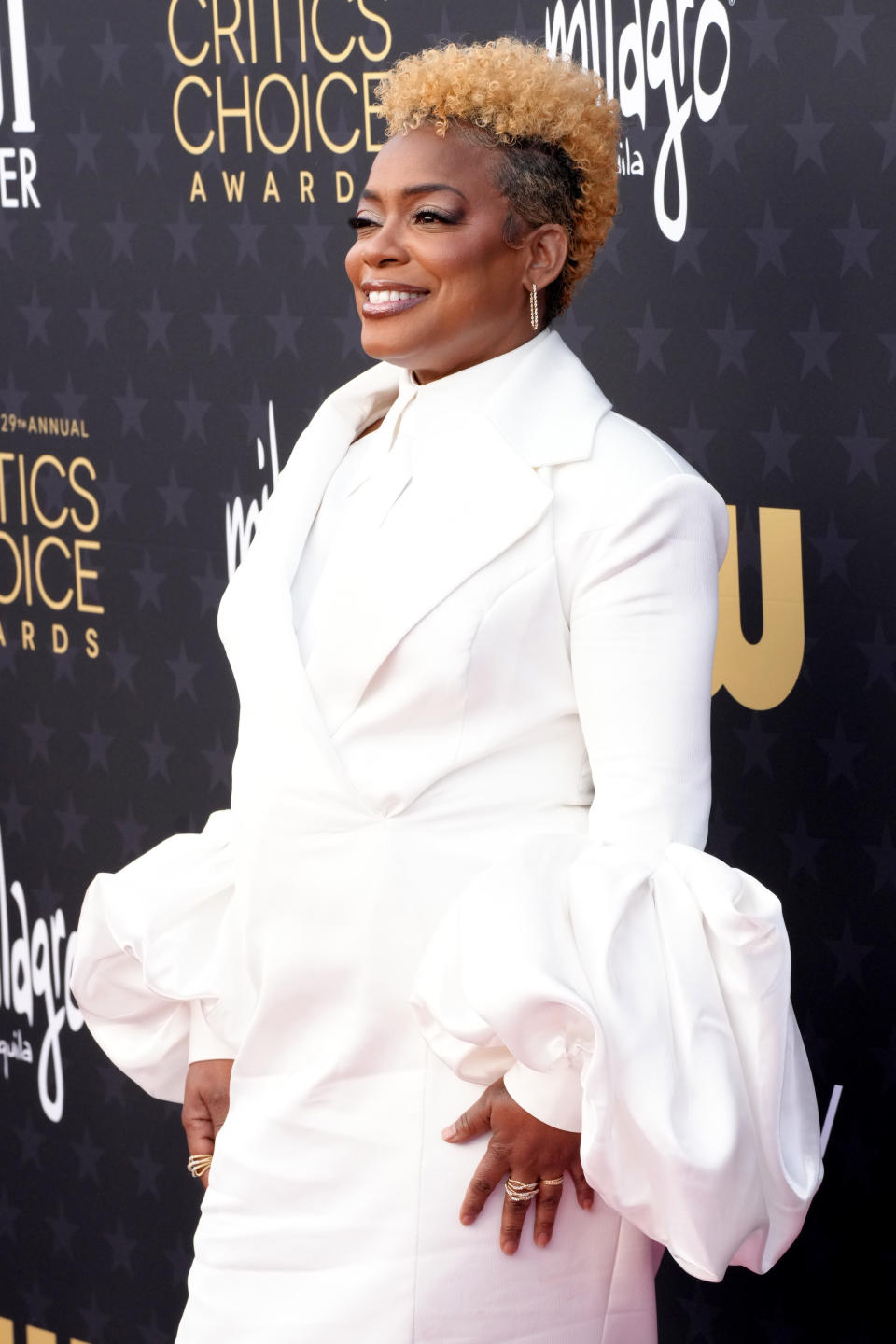
What does Black History Month mean to you?
When I was in graduate school at NYU, they had Black History Month programs, and I didn't participate in them. It was gonna be me and all of four Black people who were performing skits about Black history in front of white students. I didn't want to do that. I didn't want to perform for them. It felt exploitative to me.There's so much work we have to do. Every time I talk to someone, they tell me, "I want to do a project about this Black woman or this Black man," and then they ask me, "Do you know them?" I [usually] say, "No, I have never heard of them." I used to be so ashamed about having such an impoverished understanding of Black history. Now, I think to myself, "It wasn't intended for you to know."
What do you want your contributions to Black history to be?
The work that I do when I'm not filming. For example, last fall I put up billboards in Georgia and in Florida that had my picture on it, and they read, "My name is Aunjanue Ellis and I had an abortion." I did that because my family went to Disney World last June and every other billboard on the highway was an act of intimidation against women [getting abortions]. I saw a couple of them that were directly targeted at Black women. I said, "I gotta do something about this." So I got my own billboard.
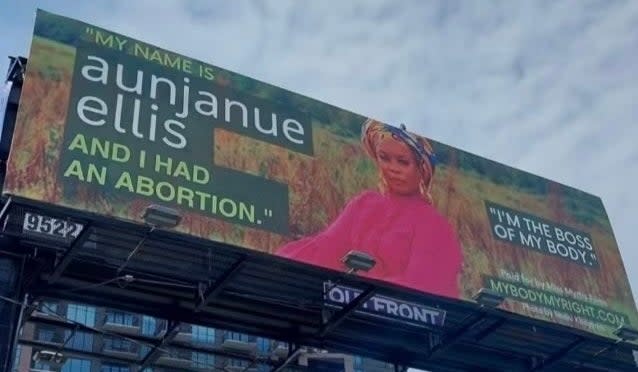
I am proud of it. I gave them one less space to use to intimidate women into sexual and reproductive shame. I've been doing that kind of stuff for a long time. I did it with a Confederate flag in Mississippi as well. I put up a billboard that read, "You shall overcome," written in Confederate flags. That pissed people off. I was glad because it got people talking about that flag. I love billboards, honey. [Laughs]
Lastly, what has been the biggest progress you’ve noticed regarding intersectionality between Blackness and queerness?
You. Having this conversation with you. I don't feel like I have to choose. I am equally both, and I'm proud of both. I am not one without the other. The fact that you got on the call with me and said, "I'm going to ask you questions about you." I feel that is progress.
Thanks for chatting with us, Aunjanue! Be sure to catch Aunjanue Ellis-Taylor in Origin, now playing in a theater near you.
You can read more Black, Out & Proud interviews here.


 Yahoo Lifestyle
Yahoo Lifestyle 
